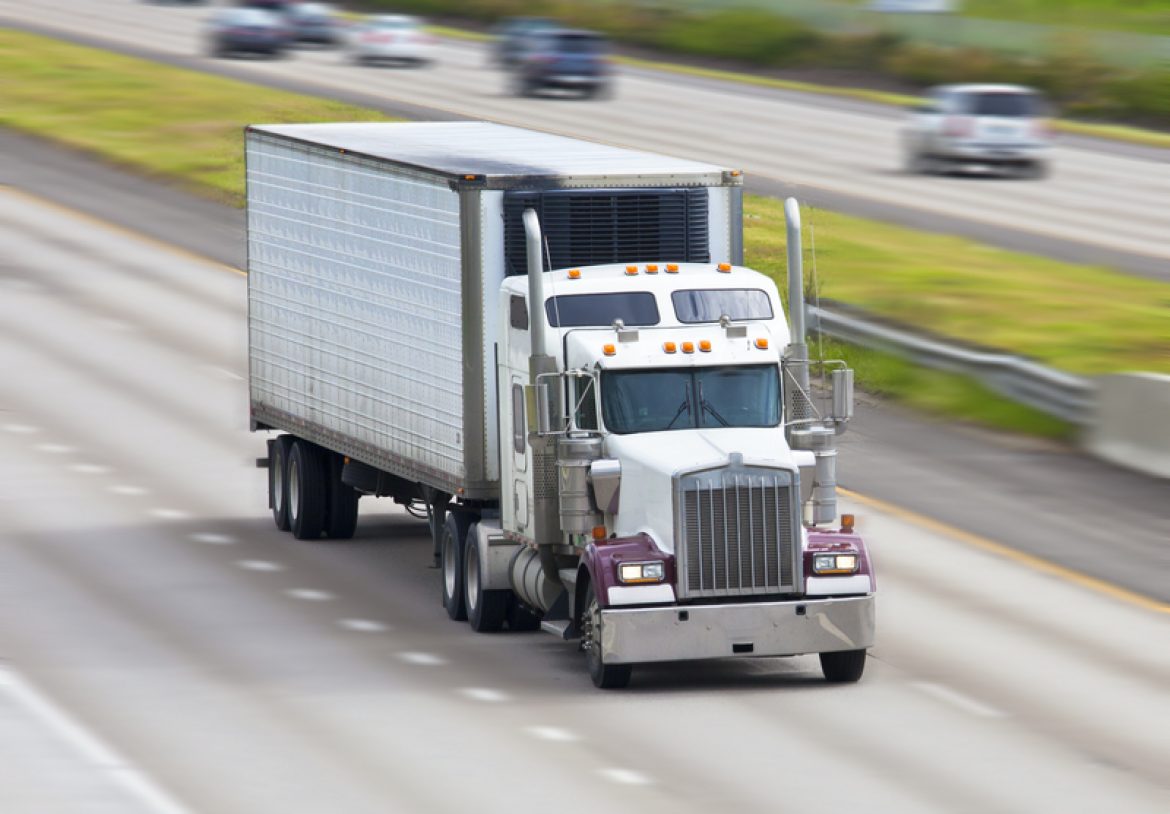Don’t Mess With 18 Wheelers: Driving Safety Tips and Handling Truck-Related Accidents

18 wheelers are the lifeblood of the United States. They bring us our food, clothing, and pretty much every other item that we buy as they unload their goods at warehouses and stores across the nation.
Yet, 18 wheelers seem like they’re just in our way when we’re driving. They’re big and slow, and it’s tempting to speed around them like any other car on the road.
Big mistake. 18 wheelers are different beasts than cars, and they require a different approach when you’re driving on the road with them. Many of these driving safety tips are also true for cars, but they are especially important when dealing with 18 wheelers.
Avoid an 18 wheeler’s huge blind spots.
As you’re passing an 18 wheeler on the left or right, you’re entering a long blind spot that’s nearly the length of their semi-trailer. If you’re going to pass, do it quickly. Especially pass quickly on the right because 18 wheelers often move over to the right to take an upcoming exit or just to get into a slower lane.
Never tailgate an 18 wheeler.
You shouldn’t tailgate any car, but especially don’t tailgate an 18 wheeler. They may have no idea you’re back there. Plus, it’s not unusual for 18 wheelers to slow down abruptly because of an obstacle up ahead (that you can’t see). Unlike a car, if you hit an 18 wheeler from the back then you will get hit right in your windshield—which can be deadly.
Never cut off an 18 wheeler.
18 wheelers take much longer to stop than a car. If you cut off an 18 wheeler and then need to brake suddenly, then the 18 wheeler may not be able to stop in time. That means they will crash into you from the back—hard.
Let 18 wheelers pass you.
Don’t compete with an 18 wheeler that seems like they really want to pass you. Just let them pass. 18 wheelers take longer to accelerate and longer to decelerate, so it’s unsafe to pull ahead of them quickly or increase your speed to prevent them from pulling back into the right lane.
Watch out for places where trucks are entering and leaving the freeway.
Keep an eye out for truck stops, weigh stations, and busy entry and exit ramps where 18 wheelers are entering and leaving the freeway. That way, you’ll be able to move over early for 18 wheelers merging into traffic and know when they will likely slow down for an exit.
18 wheelers need a lot of room to turn.
18 wheelers make wide turns, and you don’t want to be in their way. Be especially careful at intersections where 18 wheelers need to make a tough right turn where you might be in the way—even if you’re stopped in the right place for a light.
Watch out for tire blowouts.
You’ve most likely seen giant pieces of tire littering roads and interstates. Those are usually from 18 wheelers that had a tire blowout. These blowouts are especially dangerous as they happen. It’s another reason not to follow 18 wheelers too closely and to pass them as soon as possible so that you’re not hit by a flying piece of tire.
—
So, what happens if you do get involved in an 18 wheeler accident? Many aspects are the same as a car accident, but with a few differences.
-
Call the police. Even if you’re not injured, make sure you get a police report that details what happened.
-
Get as much evidence as possible. With a truck accident, you’re most likely going to deal with multiple parties: the driver, their insurance company, the trucking company, and a variety of attorneys. Get a police report, contact information, eyewitnesses, photos, medical documentation, and any other evidence.
-
Hire a personal injury attorney. A trucking accident grows complex quickly. Multiple people and organizations may be involved, and your documentation needs to be thorough. An experienced personal injury attorney who has dealt with truck accidents will help you figure out what you need.
-
Conduct your own accident investigation. Your attorney will help you through this step. You need to make sure that it’s clear what happened to cause the accident, what damage happened to the vehicles, and what injuries you experienced. Your attorney will even help you track down hard to find information like electronic data from the truck or driver logs.
-
Act fast. The longer you delay, the higher chance that important information may get lost or thrown away. For example, trucking companies may only keep driver logs for a short period of time.
Involved in an accident with an 18 wheeler? Contact us today for a free consultation.
